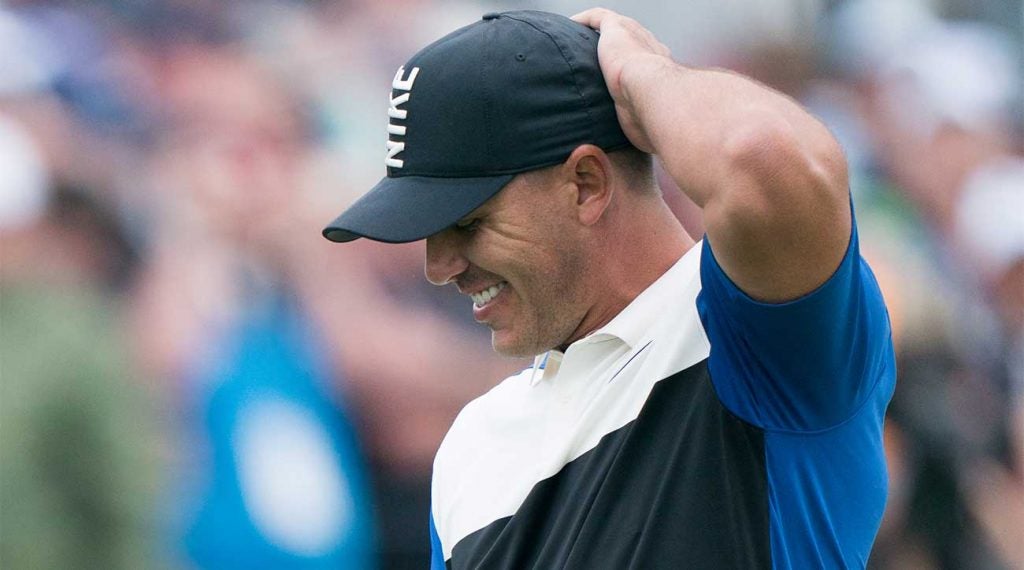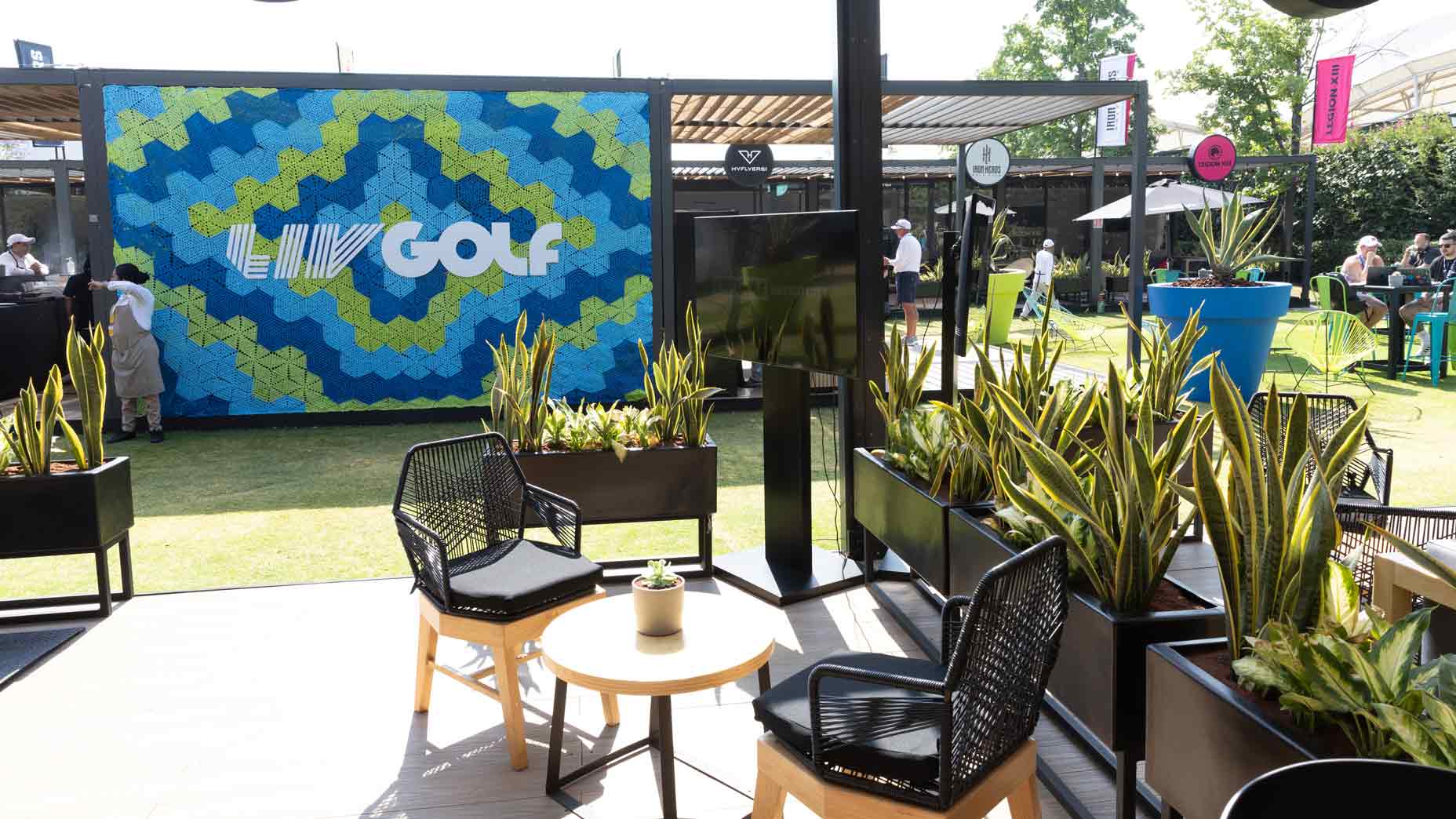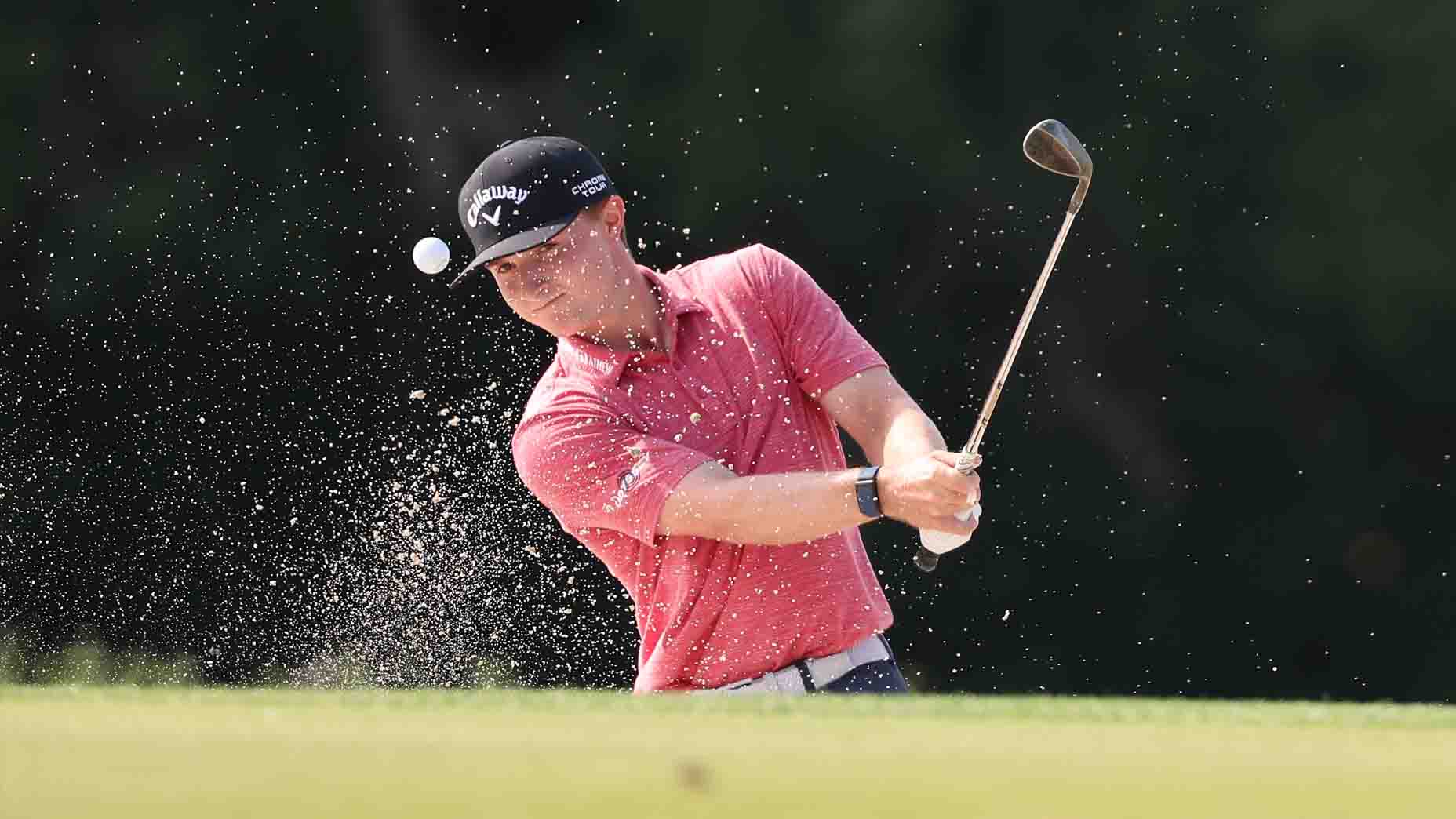 Bethpage overhauls reservation system to fight tee-time bots
Bethpage overhauls reservation system to fight tee-time bots
PGA Championship 2019: Brooks Koepka found out no win comes easily, because golf is not easy
FARMINGDALE, N.Y. — Memo to anybody whoever saw Tiger Woods play Sunday golf in a major with a big lead: Golf’s hard.
“Golf’s hard,” Ricky Elliott, Brooks Koepka’s caddie, said when it was all over.
“It was hard,” said Harold Varner III, who played with Koepka in the final round. “Hard course. Sunday at a major. The weather came up. It was just hard.” He shot 81, and he’s one of the 100 or so best golfers in the world.
As for Koepka, the winner of this 101st PGA Championship, we know he knows golf’s hard. He started the day with a seven-shot lead. He won by two. The only reason he won at all is because golf is hard. If golf — especially golf on Sunday, at Bethpage Black, for the PGA Championship, on a dank and windy day — were easy, a handful of players might have stepped right over him.
When the shouting was over and the Wanamaker Trophy hoisted, you kept hearing the words hard and challenging and stressful. This was big-league golf.
“This was the most stressful,” Koepka said in his winner’s press conference. Most stressful victory. Likely most stressful anything. Four bogeys in a row when you’re trying to win the thing — 11, 12, 13 and 14 — that’s the very definition of golfing stress.
“I wasn’t nervous — I was in shock,” Elliott said.
As the afternoon grew increasingly dank, more players and caddies and agents and significant others found refuge in the Bethpage clubhouse, where there was food and liquor and a safe distance from all that stress. Dustin Johnson went out in 32. It was extraordinary. It could not possibly be duplicated. The course was too hard, the wind was too high, the occasion was too important — and golf is too hard. His fiancee, Paulina Gretzky, sat at the clubhouse bar, watching on TV, barely saying a thing. There was nothing to say, and nothing she could do. Golf is like death. You do it alone.
Curtis Strange was watching from home, in coastal North Carolina. He won back-to-back U.S. Opens in 1988 and ’89 and he was the first to congratulate Koepka when he did the same, winning last year’s U.S. Open at Shinnecock Hills after winning the 2017 U.S. Open at Erin Hills.
“Look, this thing’s not over yet,” Strange said, just as Koepka started boarding his back-nine bogey train. “There’s nothing harder in golf than playing with a big lead. That was my experience. If you win, well, you were supposed to win. But what if you lose? Brooks’s thing is to be absorbed in that shot he’s looking at. But when you have a big lead, it’s hard not to look ahead.”
There’s that word again, hard.

ADVERTISEMENT
Experience is a funny thing. It can often help you — and hurt you, too. When Koepka stood on the tee of the par-3 14th hole, he and his caddie debated whether to hit an 8-iron or a 9-iron. What went unsaid was what happened on the short par-3 12th hole at Augusta on Sunday, when Koepka hit a 9-iron in the water, a shot which might have cost him the tournament. Yes, this was a different hole, in a different tournament, under different conditions. Sunday on 14 at Bethpage there was not a bit of conscious thought about what went wrong Sunday at 12 at Augusta. But the facts, the shots played, are baked into the golfer’s experience. Koepka drilled an 8-iron on 14 that flew about 170 yards, into the wind. From where he was, way over the green, in a fluffy lie, he did well to make bogey.
In the 1997 Masters, Woods had a nine-shot lead through three rounds, and won by 12. At the 2000 U.S. Open at Pebble Beach, he had a 10-shot lead through three rounds, and won by 15. We could cite dozens of other examples, times in which Woods led through 54 holes and won by an even more. It was merely another way that Woods demonstrated that not only was he the best physically but mentally, too. To win with a big lead is to never get ahead of yourself. In golf, as in life, that’s not an easy thing to do.
Expectations complicate everything. Francesco Molinari had a two-shot lead going into the final round of last month’s Masters. When he woke up on Masters Sunday and put on a white shirt, there was a passing moment when he thought about how the winner’s green jacket would go with it. He said you “try not to think about such things” but in the end it’s just impossible.
Koepka has now won four majors, two in the Midwest — the 2017 U.S. Open at Erin Hills in rural Wisconsin and the 2018 PGA Championship at Bellerive in St. Louis — and two on Long Island — the 2018 U.S. Open at Shinnecock Hills and the 2019 PGA Championship at Bethpage Black. Last year at Shinnecock Hills, there was a four-way tie for first after three rounds and it was nip-and-tuck all the way around in the fourth, until he prevailed at the end. On Sunday at Bethpage, Koepka watched his lead evaporate over the course of the round. Sunday night, with the Wanamaker Trophy parked in front of him, he was asked to compare his two Long Island wins:
“I think playing with a lead is a little bit tougher,” he said. “I think you have to be sharper mentally when you have such a big lead. But you still have to set goals. You still have to say, ‘Okay, I still need to go out and go play.’ I felt like I did a good job of that the first 10 holes. I don’t know if I just mentally slipped for a couple holes [after that] or what.
“Playing with the lead is a different feeling. It’s very difficult. You want to extend it. But also, you’re trying to not come back to the field. So every time you make a bogey, you’re kind of thinking, ‘I’m bringing everybody back, I’m bringing everybody back. Why am I doing this? What’s going on?'”
At this point, he sounded exactly as Jordan Spieth did, in describing the 2017 British Open, when he coughed up his big lead to Matt Kuchar.
Said Koepka: “I don’t want to say it’s panic, but…”
You’re tempted to say it’s panic’s first cousin, and we all know what that is. The golfe.
ADVERTISEMENT






